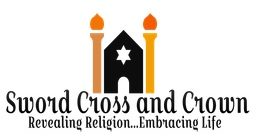Muhammad – the founder of Islam
Muhammad is believed by Muslims to be the last and greatest of the prophets. He is thought to have brought the full and final revelation of God to man. His revelations are considered to supercede all other revelations and religions. Islam teaches that a prophet must be sinless, or free from any major sin. Muhammad’s message is considered to have been preserved without error. Muhammad himself claimed to have superceded Abraham, Moses, and Jesus as the Prophet of God.
Muslims believe that both the Old and New Testaments contain prophecies about Muhammad. They believe that the nature of his call to be a prophet was miraculous. They view the Quran as having no equal in regard to its language and teaching. Muslims believe that Muhammad performed miracles, and that his life and character prove that he was the last and greatest of all the prophets.
In Deuteronomy 18: 15-18 God promised Moses that he would raise up for Israel a Prophet from among their brethren. Clearly this promised Prophet was to be an Israelite. Muhammad descended from Ishmael, not from Isaac. God said that He would establish His covenant with Isaac (Gen. 17: 21). Jesus is the Prophet that God told Moses about in Deuteronomy. As God’s Son, Jesus was Prophet, Priest (Hebrews 7-10), and King (Rev. 19-20).
According to Muhammad’s own confession, he did not perform signs and wonders like Moses and Jesus did (Sura 2: 118; 3: 183) Muhammad never claimed to speak to God face to face, but said he received revelations through an angel. Jesus was a direct mediator with God. Some Muslims claim that Muhammad was predicted in Psalm 45: 3-5 as one who would come with the sword to subdue his enemies, but these verses were referring to God, and Muhammad never claimed to be God, but Jesus did. Jesus came to earth the first time to give his life for the redemption of man, but He will come a second time as Judge.
Muslim scholars see Jesus’ reference to a coming Helper as a prediction of Muhammad. However, Jesus clearly identified the Helper as His Holy Spirit, not as Muhammad. During his call to be a prophet, Muhammad claimed that he was ‘choked’ by the angel delivering the message to him…’He choked me with the cloth until I believed that I should die. Then he released me and said: ‘Recite.’ Muhammad first believed he was being deceived by an evil spirit. He was terribly afraid of the angel until his wife and her cousin encouraged him to believe that he was like Moses and that he would be a prophet to his nation. During the reception of these revelations, Muhammad would go into convulsions or seizures.
Muhammad received some revelations about praying to idols, but later changed these revelations. Many people believe his revelations were actually constructed from various Jewish, Christian, and pagan sources. Although there are many Muhammad miracle stories in Islam, the text of the Quran 6: 35 does not state that Muhammad could perform miracles. It states, ‘If their spurning is hard on thy mind, yet if thou wert able to seek a tunnel in the ground or a ladder to the skies and bring them a sign, – (what good?). The text does not say ‘thou art able,’ but ‘if thou art able.’
Although Muhammad claimed to have received a revelation that a man could have as many as four wives, he himself had many more. Muhammad validated the beating of a female servant in order to make her tell the truth. He claimed that it was okay with God (Allah) for men to beat their wives. His revelations also included the demand that women wear veils, stand behind their husbands, and kneel behind them in prayer. Muslim law does not permit a woman to seek a divorce, but allows a man to do so. Regarding civil contracts, the witness of two women is equal to the witness of one man.
Muhammad justified killing in jihad, or holy war. Muhammad sanctioned the raiding and pirating of commercial caravans. He also said that it was okay to lie to your enemies. He approved of assasinations of those who mocked or criticized him. Many Muslims believe that Muhammad had perfect moral character however, there is overwhelming evidence that this is not true. (Geisler and Saleeb 146-176)
RESOURCES:
Geisler, Norman L., and Abdul Saleeb. Answering Islam: The Cresent in Light of the Cross. Grand Rapids: Baker Books, 1993.
